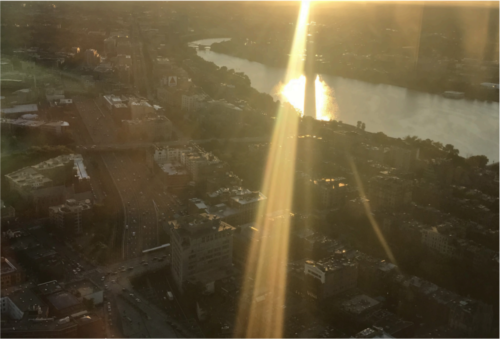On March 10, 2020, I was sitting at home on my couch when I first learned that Harvard wasn’t letting students return to campus after spring break. I heard it from a friend on Snapchat first, their face streaked with tears and voice cracking in a 15-second video that I had to replay to understand what they were saying. I hadn’t looked at my college email inbox for about a month, but I logged into it that day to read the announcement for myself.
My first thought was that it wasn’t fair that students were being sent away, and I hurt for those who were giving up their senior year to the pandemic. My second thought was, selfishly, to be glad for myself and my decision to take time off this past January.
There are many words I could use to describe my feelings over the days following the announcement. Awe for those who managed to make the best of their situation and arrange to move completely out of their dorms in a matter of days. Sympathy for those who had to uproot their entire lives and move to the other side of the country, or the other side of the world, because Harvard would not let them stay. Fear of the unknown, not being sure how long this situation would last. Would everyone be able to go back in a few weeks? Would I be able to return to Harvard next fall? Relief, detachment, because I had already been away from Harvard for so long. The struggles my peers were facing were not my own, I was an outsider looking in on a school in chaos, and I could not have been more grateful that I was not at Harvard that semester.
I remember that when I first got to Harvard, I thought that a leave of absence was a sign of failure. College was supposed to be the greatest voyage of my life, my chance to make a name for myself, seek adventure, and find success. If I had to leave college for some reason, or I couldn’t finish school in the designated four years, or I couldn’t handle being a student anymore, I would be letting myself and my family down. In my 18-year-old mind, that was unacceptable. Harvard was my only shot at trying to end the cycle of poverty my family has experienced for generations. Messing that up by letting the stress get to me was being ungrateful, and leaving was not an option for me.
It’s interesting to think about how much perspective two years can give someone. I went from considering a leave of absence to be something almost sinful, to realizing it was my only lifeline when I felt like I was drowning. The end of 2019 saw me at my absolute worst, struggling to turn in projects and attend classes, giving in to the impulse to self-sabotage, and being so lonely that it was hard to get out of bed knowing that I had to face another meal alone, another day not speaking to anyone. In my head, I knew that if I could just reach out for help, everything would get better. I could stay afloat, hell, I might even be able to tread water again. But I couldn’t get myself to do it. I was adrift and drowning, and the only way to save myself was to swim for land.
The process of leaving Harvard behind for a semester was surprisingly easy. I’m not sure if it was surprising because the FAS handbook makes it sound daunting, or because it was one of the hardest choices I’ve ever made for myself in my life. I emailed my Resident Dean and the process was more-or-less taken care of for me. All I had to say was that I wanted to leave, and it was as simple as hitting send on an email.
I had been expecting to have to return to campus and sit through a round of interviews explaining why I deserved to take a leave of absence,, but my Dean, the Financial Aid Office, and even the Housing Office were very accommodating. There were a few hiccups in the process; like it taking a few weeks for my leave to be officially approved, and the housing office somehow still charging me the full price of the room and board that I wasn’t using. Eventually, everything was resolved and I had a massive amount of free time on my hands to figure out what I wanted to do with my life and work on my mental health.
I couldn’t have predicted how well-timed my leave of absence turned out to be with the pandemic. When the time came for Harvard to close its campus, I had many friends tell me that they wished they’d taken time off too. Zoom University was not easy for a lot of people, and many a G.P.A. suffered for it.
I’ll always be grateful that I decided to take time off during the 2020 Spring semester. I also can’t recommend taking a leave of absence, if you need it, enough. For me, it was the only reason I was able to get through the spring of 2020. I also discovered a lot about myself, and my limits, that I wouldn’t have had the time to explore while balancing classes and multiple part-time jobs at Harvard.
It wasn’t always easy being on leave. I lost a lot of my income by not being able to keep my on-campus jobs, and there were times when I was bored to tears and wanted to rip my hair out. No matter what, though, I can’t deny how much I needed the rest and healing that my body and my soul ended up getting, even while we were trapped in quarantine.
Alaya Ayala ‘21 (alaya_ayala@college.harvard.edu) enjoys writing personal essays for the Indy.
Photo by Alaya Ayala ’21.

